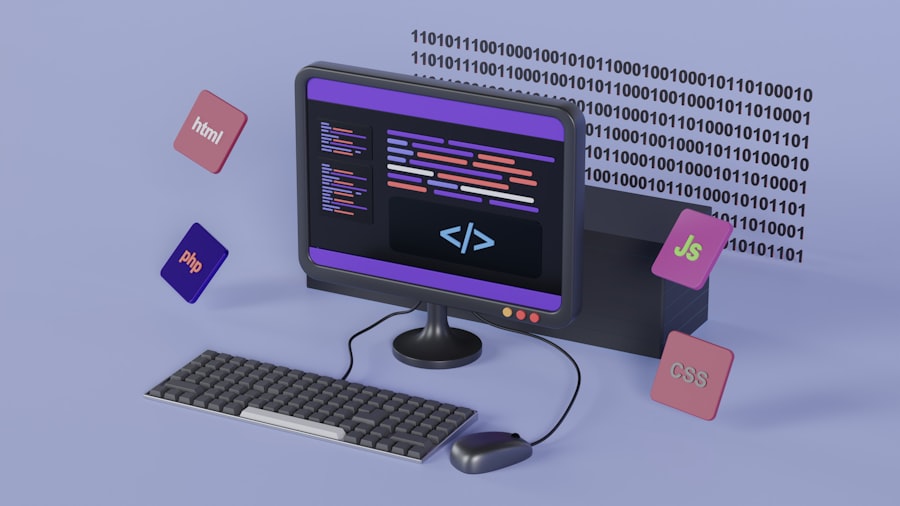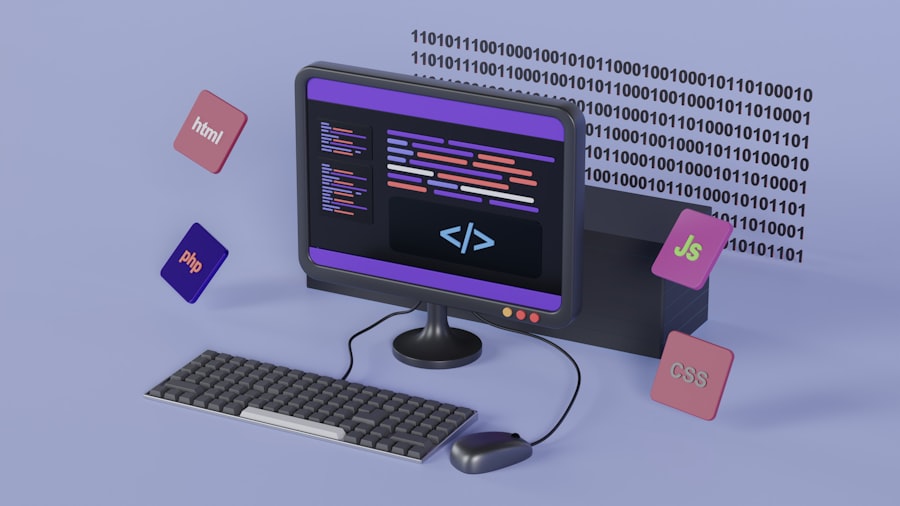Clinical Data Management Software (CDMS) plays a pivotal role in the realm of clinical research and trials, serving as a cornerstone for the collection, management, and analysis of data generated during these studies. As the healthcare landscape evolves, the need for robust data management solutions has become increasingly apparent. CDMS is designed to facilitate the efficient handling of vast amounts of data, ensuring that it is accurate, secure, and readily accessible for analysis.
This software is essential for clinical research organizations (CROs), pharmaceutical companies, and academic institutions that conduct clinical trials, as it helps streamline processes and improve data integrity. The significance of CDMS cannot be overstated, particularly in an era where regulatory compliance and data security are paramount. With the rise of digital health technologies and the increasing complexity of clinical trials, traditional data management methods are often inadequate.
CDMS addresses these challenges by providing a centralized platform for data entry, validation, and reporting. This not only enhances the quality of the data collected but also accelerates the overall research timeline, allowing for quicker decision-making and more efficient resource allocation.
Key Takeaways
- Clinical Data Management Software (CDMS) enhances accuracy and efficiency in clinical trials.
- Key features include data validation, secure storage, and user-friendly interfaces.
- CDMS streamlines workflows by automating data collection and reducing manual errors.
- Implementation challenges can be overcome with proper training and integration strategies.
- Future trends point to AI integration and cloud-based solutions for improved data handling.
Benefits of Using Clinical Data Management Software
The advantages of utilizing Clinical Data Management Software are manifold, significantly impacting both the efficiency of clinical trials and the quality of the data collected. One of the primary benefits is the enhancement of data accuracy. CDMS incorporates various validation checks and automated processes that minimize human error during data entry.
This is crucial in clinical trials where even minor inaccuracies can lead to significant consequences, including regulatory penalties or compromised patient safety. By automating routine tasks and implementing stringent data validation protocols, CDMS ensures that the data collected is reliable and trustworthy. Another notable benefit is the improvement in data accessibility and collaboration among stakeholders.
In traditional data management systems, accessing and sharing information can be cumbersome and time-consuming. CDMS provides a centralized repository where all trial-related data can be stored, accessed, and analyzed in real-time. This facilitates seamless collaboration among researchers, sponsors, and regulatory bodies, enabling them to make informed decisions based on up-to-date information.
Furthermore, with cloud-based solutions becoming increasingly popular, stakeholders can access critical data from anywhere in the world, enhancing flexibility and responsiveness in clinical trial management.
Features to Look for in Clinical Data Management Software

When selecting Clinical Data Management Software, it is essential to consider a range of features that can significantly influence its effectiveness in managing clinical trial data. One critical feature is user-friendly interface design. A well-designed interface allows users to navigate the software easily, reducing training time and increasing overall productivity.
Intuitive dashboards that provide quick access to key metrics and reports can enhance user experience and facilitate better decision-making. Another important feature is robust data security measures. Given the sensitive nature of clinical trial data, it is imperative that CDMS includes advanced security protocols such as encryption, user authentication, and audit trails.
These features help protect against unauthorized access and ensure compliance with regulations such as the Health Insurance Portability and Accountability Act (HIPAA) and the General Data Protection Regulation (GDPR). Additionally, the software should offer customizable access controls to allow different levels of access based on user roles, further enhancing data security.
How Clinical Data Management Software Streamlines Processes
| Metric | Before Using CDMS | After Using CDMS | Impact |
|---|---|---|---|
| Data Entry Time | 15 hours per study | 5 hours per study | 67% reduction in time |
| Error Rate in Data | 8% of entries | 2% of entries | 75% decrease in errors |
| Query Resolution Time | 10 days | 3 days | 70% faster resolution |
| Data Lock Time | 30 days | 12 days | 60% faster data lock |
| Cost of Data Management | High (manual processes) | Reduced (automated workflows) | Significant cost savings |
| Regulatory Compliance | Manual tracking | Automated audit trails | Improved compliance and traceability |
Clinical Data Management Software streamlines various processes involved in clinical trials by automating routine tasks and facilitating efficient workflows. One way it achieves this is through electronic data capture (EDC), which allows researchers to collect data directly from clinical sites using electronic devices rather than relying on paper forms. This transition not only accelerates the data collection process but also reduces the likelihood of errors associated with manual data entry.
EDC systems can be integrated with other tools such as electronic health records (EHRs), further enhancing data accuracy and completeness. Moreover, CDMS enhances monitoring and reporting capabilities throughout the trial lifecycle. Real-time dashboards provide insights into patient recruitment rates, data quality metrics, and site performance, enabling project managers to identify potential issues early on.
This proactive approach allows for timely interventions that can mitigate risks and keep the trial on track. Additionally, automated reporting features enable researchers to generate comprehensive reports quickly, which can be shared with stakeholders or regulatory bodies without delay.
Challenges and Solutions in Implementing Clinical Data Management Software
Despite the numerous benefits of Clinical Data Management Software, organizations may encounter several challenges during implementation. One common hurdle is resistance to change among staff accustomed to traditional methods of data management. To address this issue, it is crucial to involve key stakeholders early in the selection process and provide comprehensive training on the new system.
Engaging users through workshops or pilot programs can help alleviate concerns and foster a culture of acceptance towards new technologies. Another challenge lies in ensuring interoperability with existing systems. Many organizations utilize a variety of software solutions for different aspects of clinical research, which can lead to data silos if not properly integrated.
To overcome this obstacle, it is essential to choose a CDMS that supports interoperability standards such as Fast Healthcare Interoperability Resources (FHIR) or Health Level Seven International (HL7). This ensures that data can flow seamlessly between systems, enhancing overall efficiency and reducing duplication of efforts.
Case Studies of Successful Implementation of Clinical Data Management Software

Several organizations have successfully implemented Clinical Data Management Software, showcasing its transformative impact on clinical research processes. For instance, a leading pharmaceutical company faced challenges with managing large volumes of trial data across multiple sites. By adopting a cloud-based CDMS solution, they were able to centralize their data management efforts, resulting in a 30% reduction in data entry errors and a significant decrease in time spent on monitoring activities.
The real-time analytics provided by the software allowed project managers to make informed decisions quickly, ultimately expediting the trial timeline. Another compelling case study involves an academic institution conducting a multi-center clinical trial for a novel treatment. The institution initially relied on paper-based methods for data collection, which proved cumbersome and inefficient.
After implementing a comprehensive CDMS solution, they experienced enhanced collaboration among research teams across different sites. The software’s automated reporting features enabled them to generate interim results rapidly, facilitating timely adjustments to their study protocol based on emerging findings. This case highlights how CDMS not only improves operational efficiency but also enhances the quality of research outcomes.
Future Trends in Clinical Data Management Software
As technology continues to advance at a rapid pace, several trends are emerging in the field of Clinical Data Management Software that promise to reshape how clinical trials are conducted. One notable trend is the integration of artificial intelligence (AI) and machine learning (ML) capabilities into CDMS solutions. These technologies can analyze vast datasets more efficiently than traditional methods, identifying patterns or anomalies that may not be immediately apparent to human researchers.
This could lead to more accurate predictions regarding patient outcomes or trial success rates. Additionally, there is a growing emphasis on patient-centric approaches in clinical research. Future CDMS solutions are likely to incorporate features that enhance patient engagement and participation in trials.
For example, mobile applications that allow patients to report symptoms or side effects directly through their smartphones could be integrated into CDMS platforms. This not only improves data collection but also empowers patients by giving them a voice in their treatment journey.
The Impact of Streamlining Clinical Data with Management Software
The implementation of Clinical Data Management Software has revolutionized how clinical trials are conducted by streamlining processes and enhancing data integrity. As organizations continue to navigate the complexities of clinical research in an increasingly digital world, the importance of effective data management cannot be overstated. By leveraging advanced technologies such as AI and mobile applications, CDMS will continue to evolve, offering even greater efficiencies and insights into clinical trial outcomes.
The impact of these advancements extends beyond operational efficiencies; they also contribute to improved patient safety and more effective treatments. As stakeholders embrace these innovations, they will be better equipped to meet regulatory demands while delivering high-quality research outcomes that ultimately benefit patients worldwide. The future of clinical research lies in harnessing the power of technology to create more efficient, transparent, and patient-centered trials—an endeavor that Clinical Data Management Software is uniquely positioned to support.




